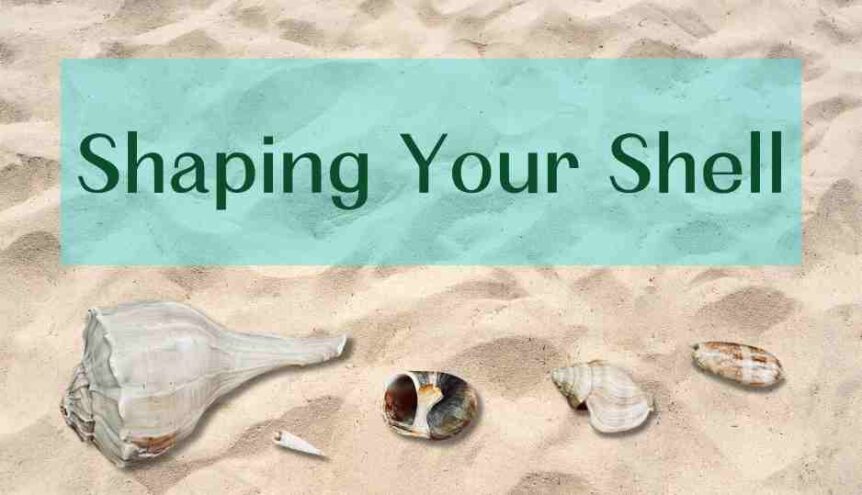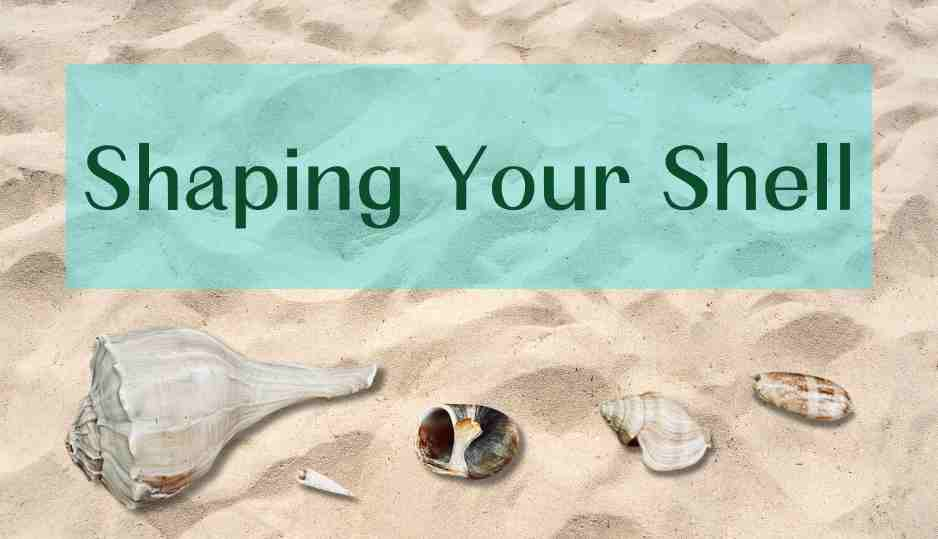If you’re like me, you often take God’s creation for granted. For example, Chris and I were at Orange Beach, Alabama, last week for a quick getaway—and to celebrate his birthday. If you’ve never been, they have the most pristine beach I’ve ever seen. Sand so fine and white, I can’t help but curl my toes into it.
We’ve visited several times, but I’m still like a little kid when I come across yet another beautiful shell. There are often a few people (mostly women) who will walk in the surf with a net trying to capture shells before they hit the beach. I’m not that invested. I’d rather pick them up after they’ve been abandoned to be sure there are no longer sea creatures living in their depths. And to be honest, I’m not all that keen on meeting up with a jelly fish!
There are some shells so common, I don’t even bother to bend down for them anymore. Like I said earlier, I’ve taken God’s creation for granted. Walking along the sand last week, we were blessed with some new and unique finds. One shell was so big, it didn’t even fit in the palm of my hand. Another no bigger than a minute. And it struck me—how do they grow? I mean, there are various sizes, so why are some bigger than others?
I asked Chris this question—after all, he has a degree in marine biology, so he should be an expert, right?
“Deposits of different minerals, I suppose,” was his answer.
“You mean, you don’t actually know? Wasn’t that your specialty?”
He shrugged. “It’s been a few years.” I won’t tell you exactly how many, because he’s a little sensitive about his age, but suffice it to say it’s been a whole lot more than “a few.”
When we got home, I Google the question and found a pretty cool YouTube video on North Carolina seashells, which you might be interested in viewing.
The short version is that minuscule-sized sea creatures start with a minuscule-sized shell—some are even born with their shells. They filter their food, and using calcium carbonate, proteins, and other minerals, they grow their shells along with their bodies. Crazy, isn’t it?
Or is it?
Think about our faith-walk like the growth of a seashell. We start with a minuscule faith (the size of a mustard seed), and as we receive spiritual nutrition, it grows. At least, it should grow. I suppose it depends on the quality of the nutrition.
I spent my entire life attending church—aside from a few years between college and kids—and it wasn’t until I had my world crash down around me that I truly sought the Lord. My faith had been stagnant and misguided up until the day I hit my knees and surrendered everything to Him. I’d never even read the Bible for myself. I don’t think I’d ever even opened the Bible.
Like sea creatures that aren’t living in nutrition-rich environments, we cannot grow without being well-fed. Listening or reading the preached Word, time in focused prayer, surrounding ourselves with like-minded believers, taking every thought captive…
Quality matters.
The more time we spend pursuing Jesus, the more growth we will attain. It doesn’t happen by osmosis, and as much as we’d like to think listening to a weekly sermon has enough impact, that may not be the case. Not only are we abdicating our education to another flawed human (because we’re all flawed), how do we know what our pastor says is true? We need to be able to test it against scripture, but we can only do that when we know the Word.
There have been more than a few theologians or Bible teachers who have gone down the slippery slope toward progressiveness. In their estimation, the Bible is no longer the inerrant word of God—it’s more of a suggestion. Shame on them for leading others down this serpent-in-the-garden road.
When we stand before Jesus and account for our lives, we can’t be blame-shifters. “It’s not my fault I misunderstood Your word, Jesus. My pastor misled me.” Good luck with that. We alone are responsible for our choices, and that includes following God’s Word. Believe me, there will be plenty of preachers/teachers who will be held accountable for their false teaching, but it doesn’t give us as individuals a pass.
It’s also difficult to attain an intimate relationship with the Lord only through a weekly message. Think about the person you love most in this world—for me, that’s my husband, so I’ll use him as an example. Chris was well-known in our small community, and many of the teachers I worked with knew him personally as patients or spouses of patients, and they loved to tell me what a catch he was. No matter what they said about him, I needed to spend quality time alone in his presence in order to know him for myself.
It’s the same with God. How much more intimate will our relationship be with Him if we spend time every day in His presence? How else will we be able to hear His still, small voice guiding us in our daily walk? It’s bad enough that I’ve taken God’s creation for granted; I certainly don’t want to take Him for granted as well.
Quantity matters.
The fact is, as you walk the shell-strewn beaches, you will find some hardly worth notice—the little ones that haven’t attained enough strength and nutrition to grow. And then there are massive ones that have somehow withstood the ravages of the sea for years, continually filtering enough nutrition, and growing substantially.
Just like our faith, they all start small. But if we feed and nurture it, we can be sure it will stand the test of time.








Comments 2
I totally agree. I love the shell analogy.
So, so thought provoking!